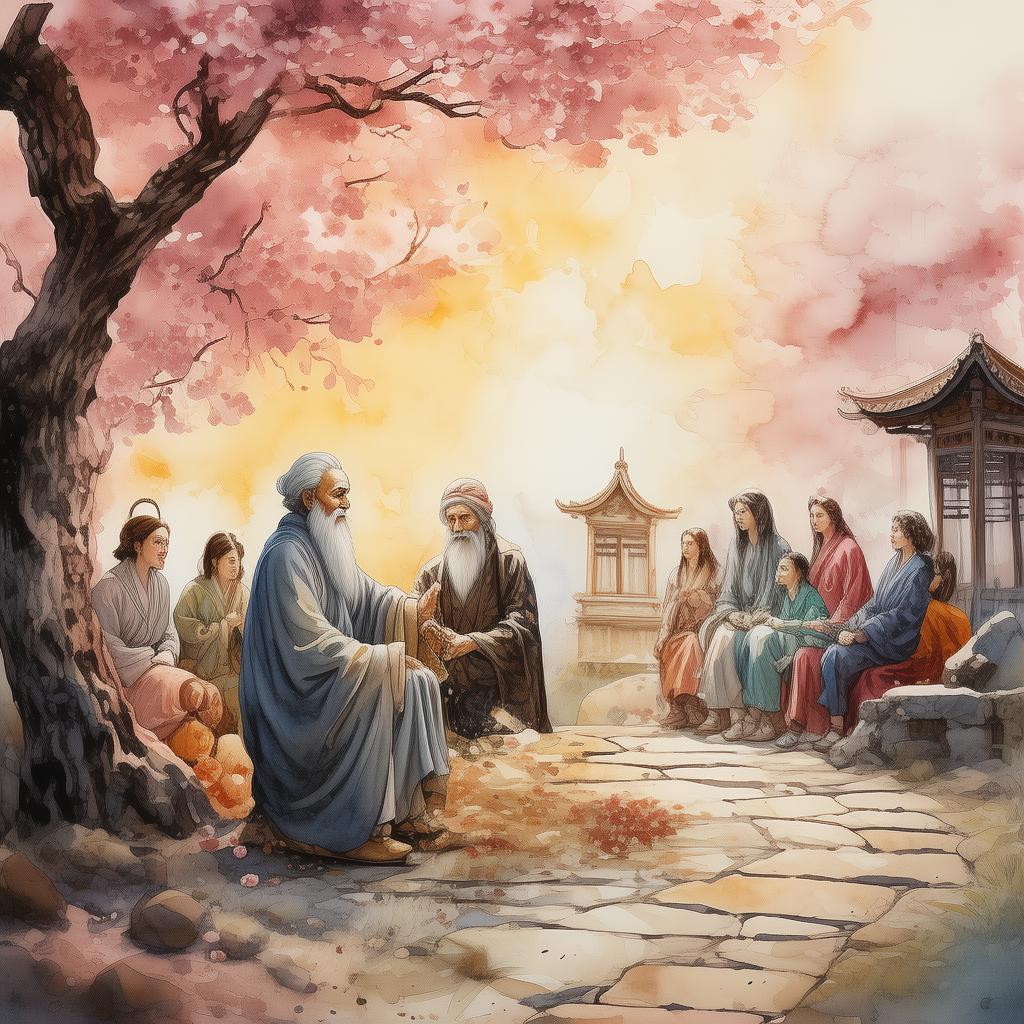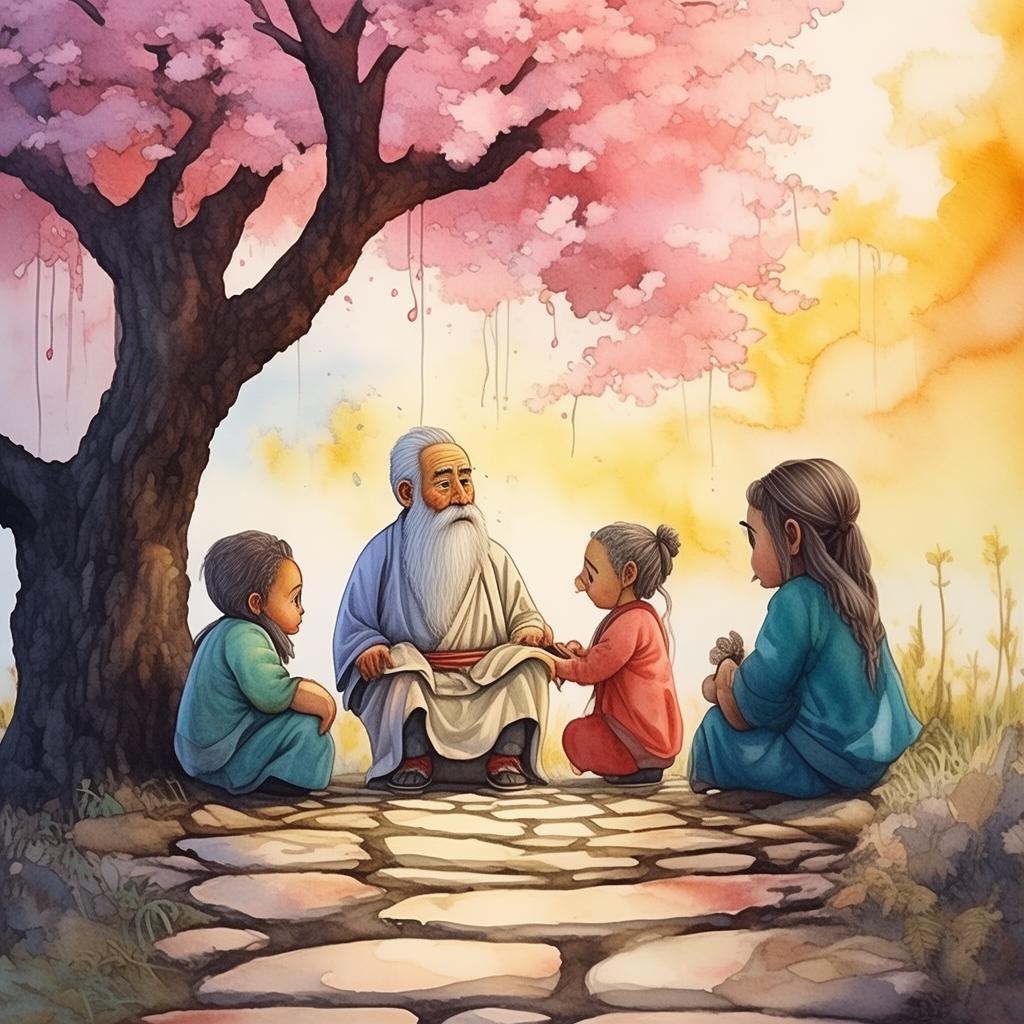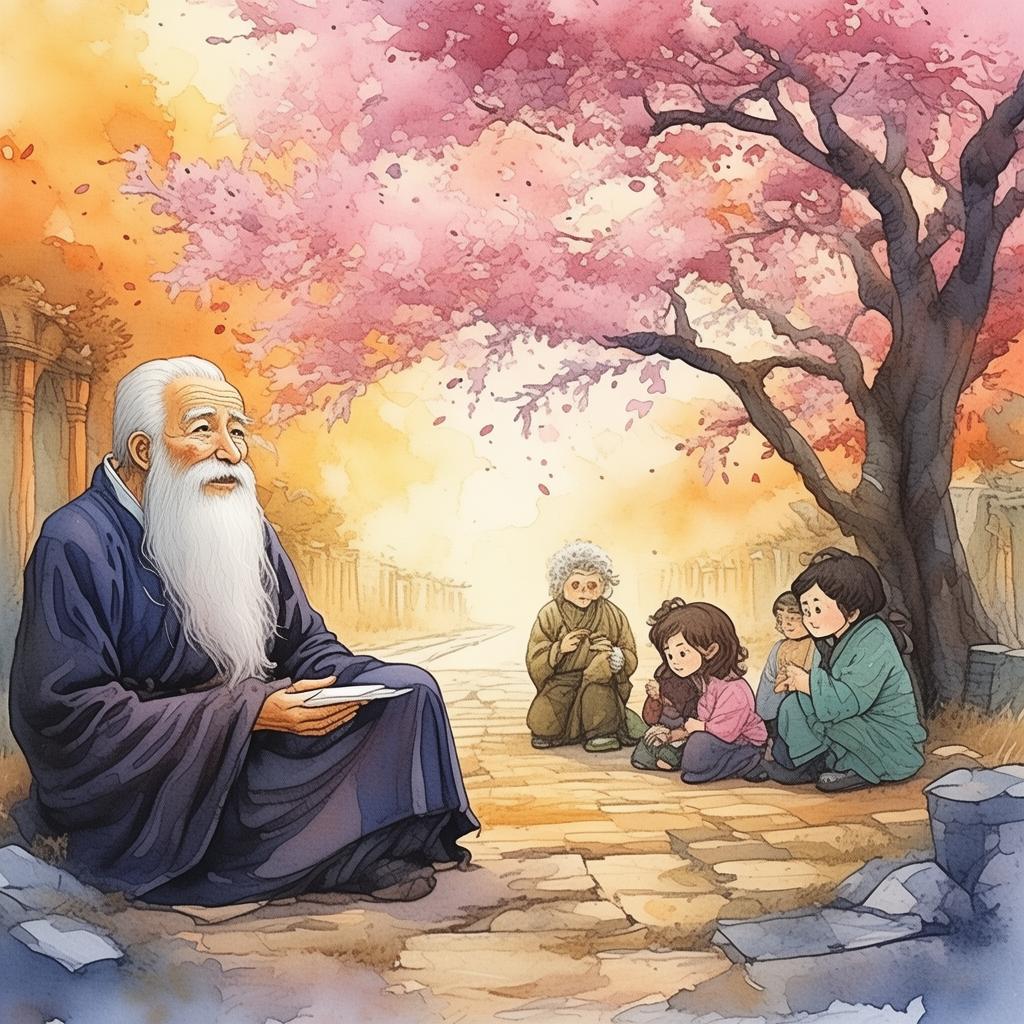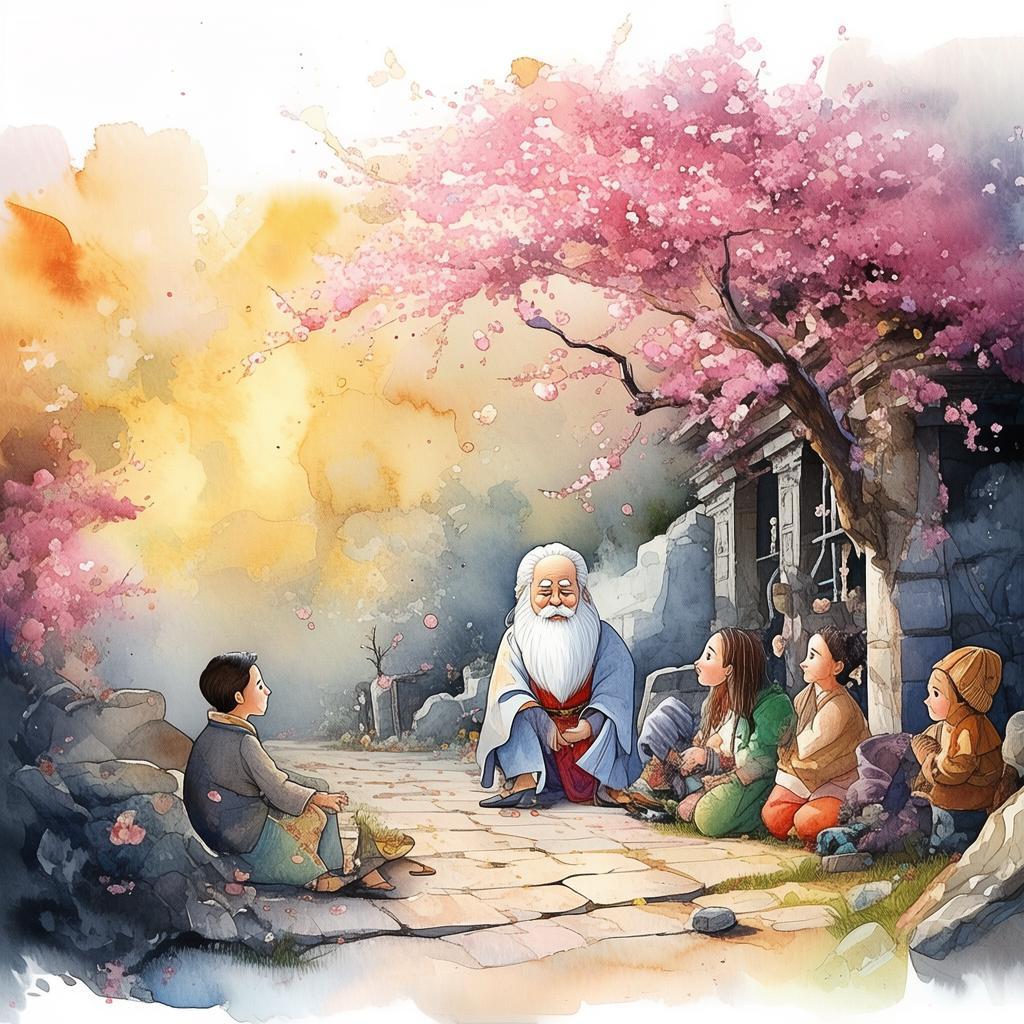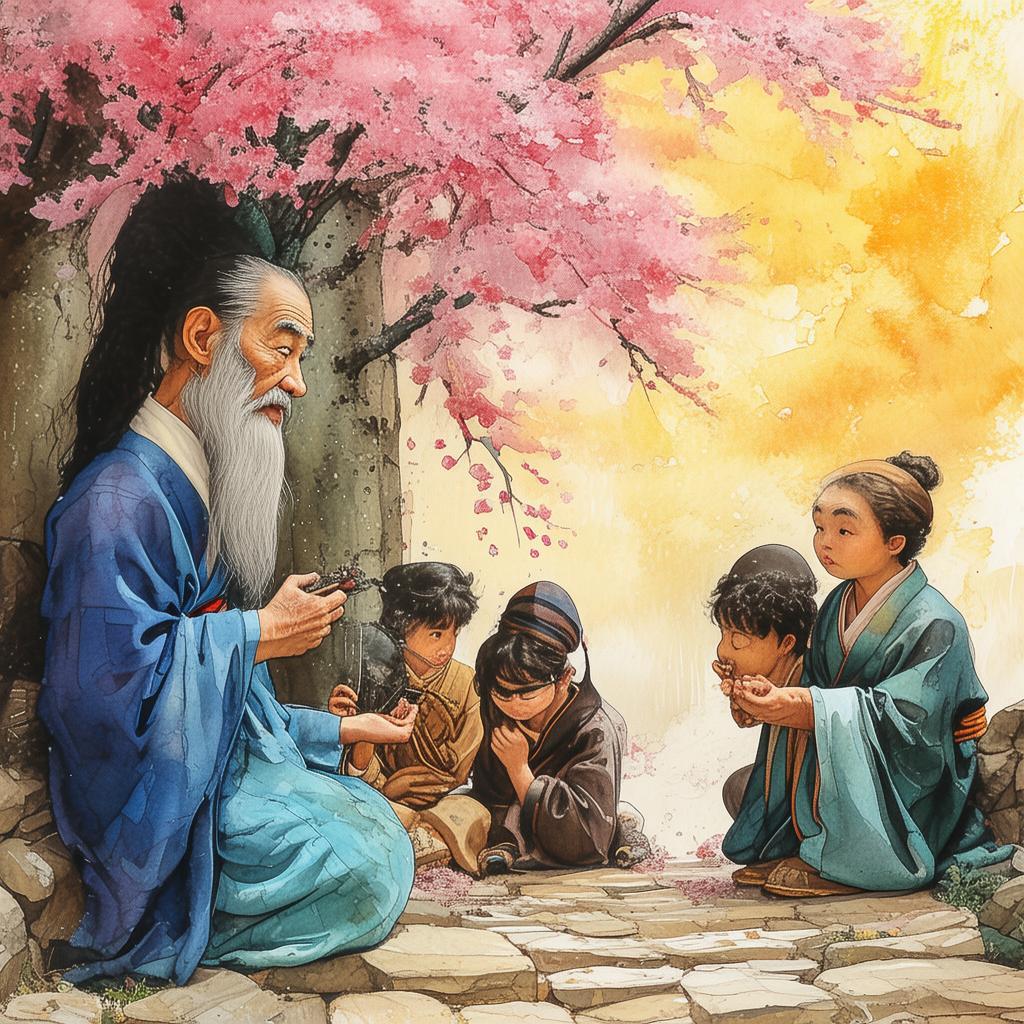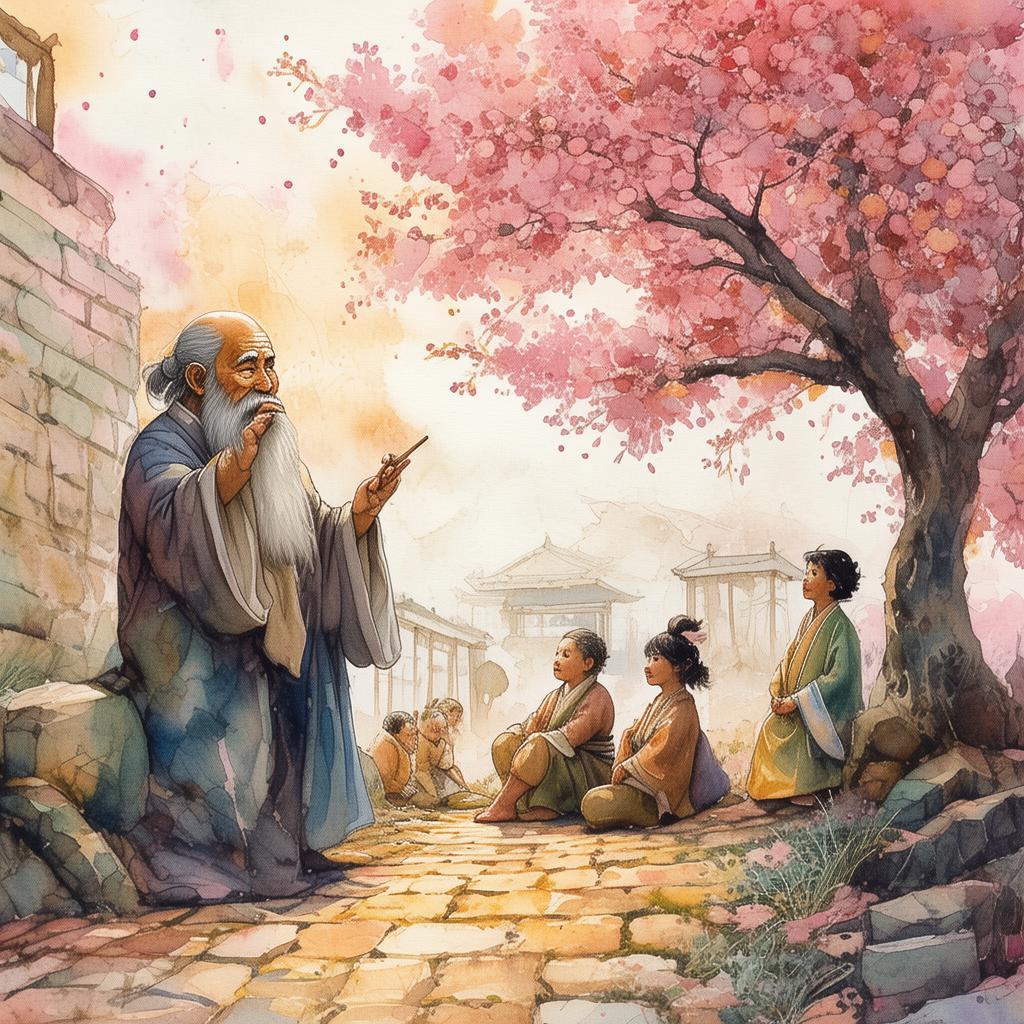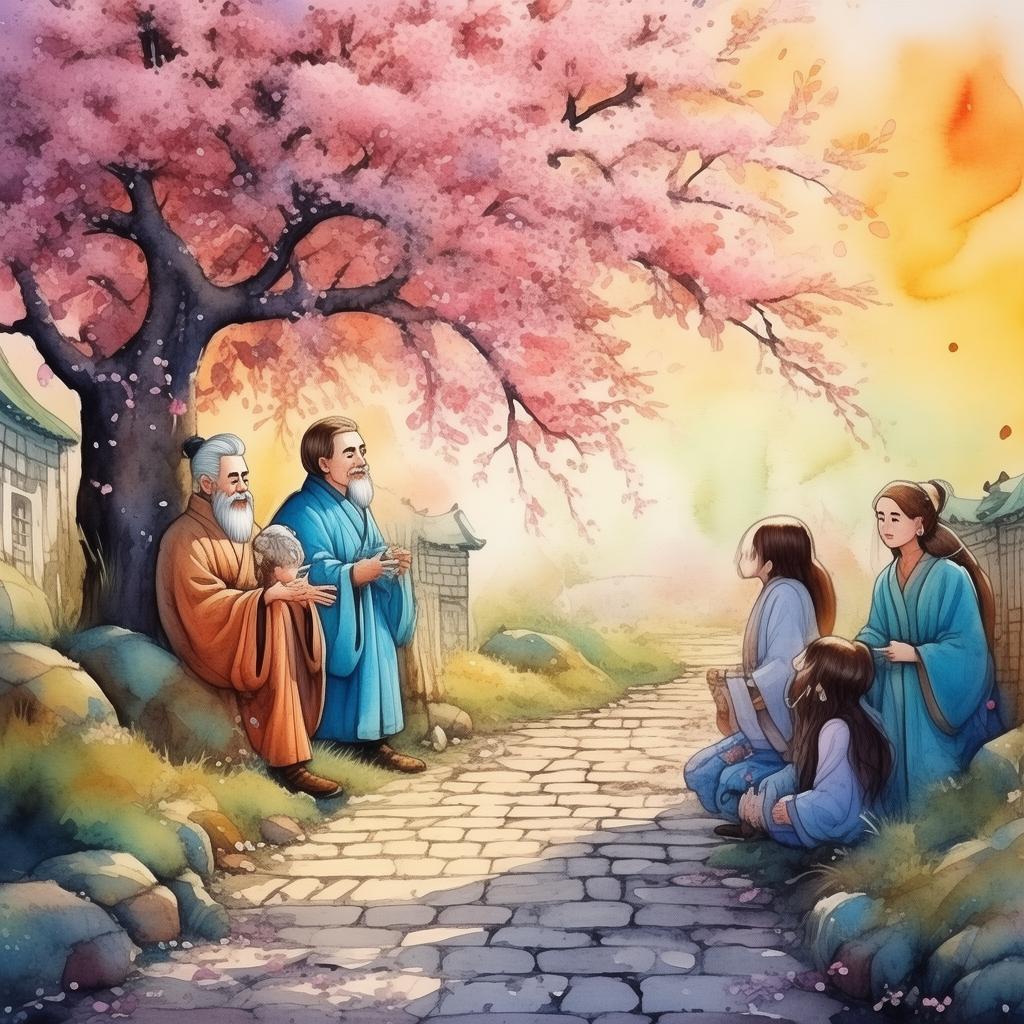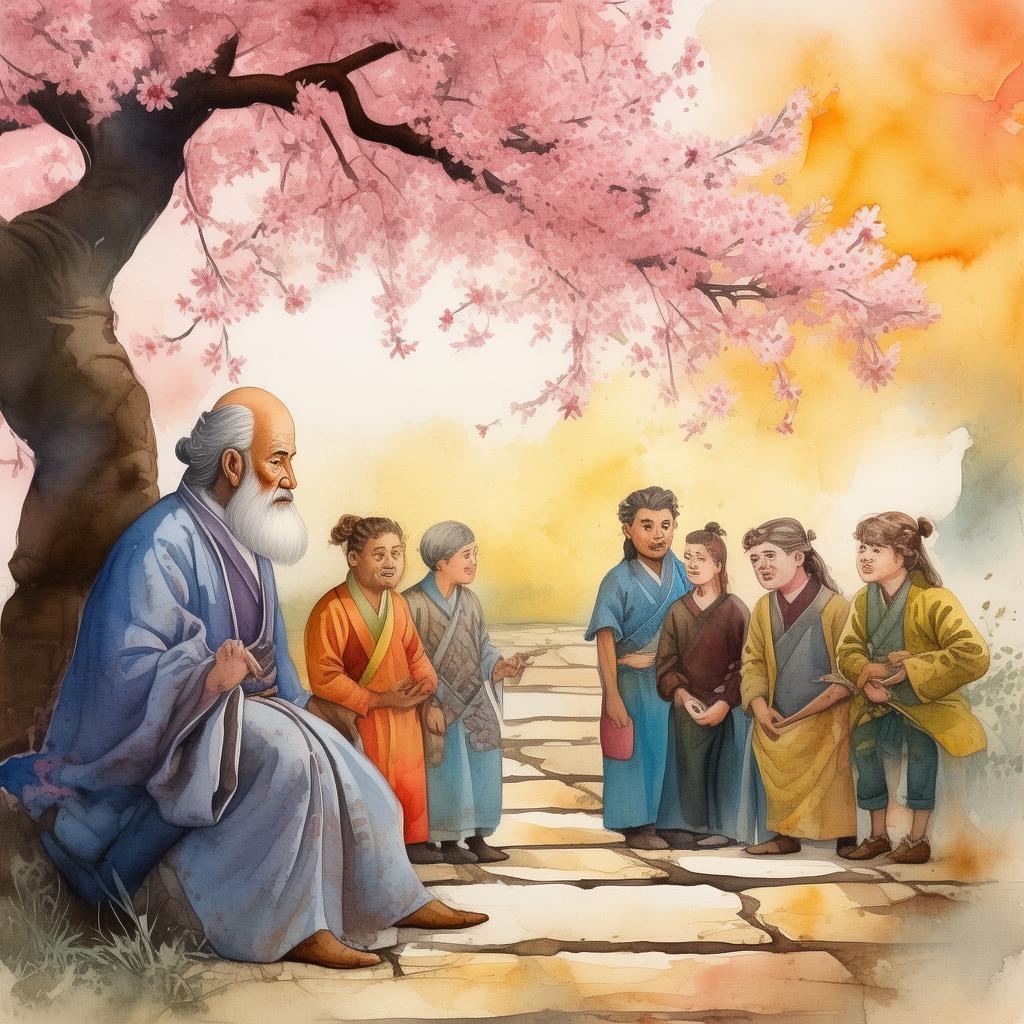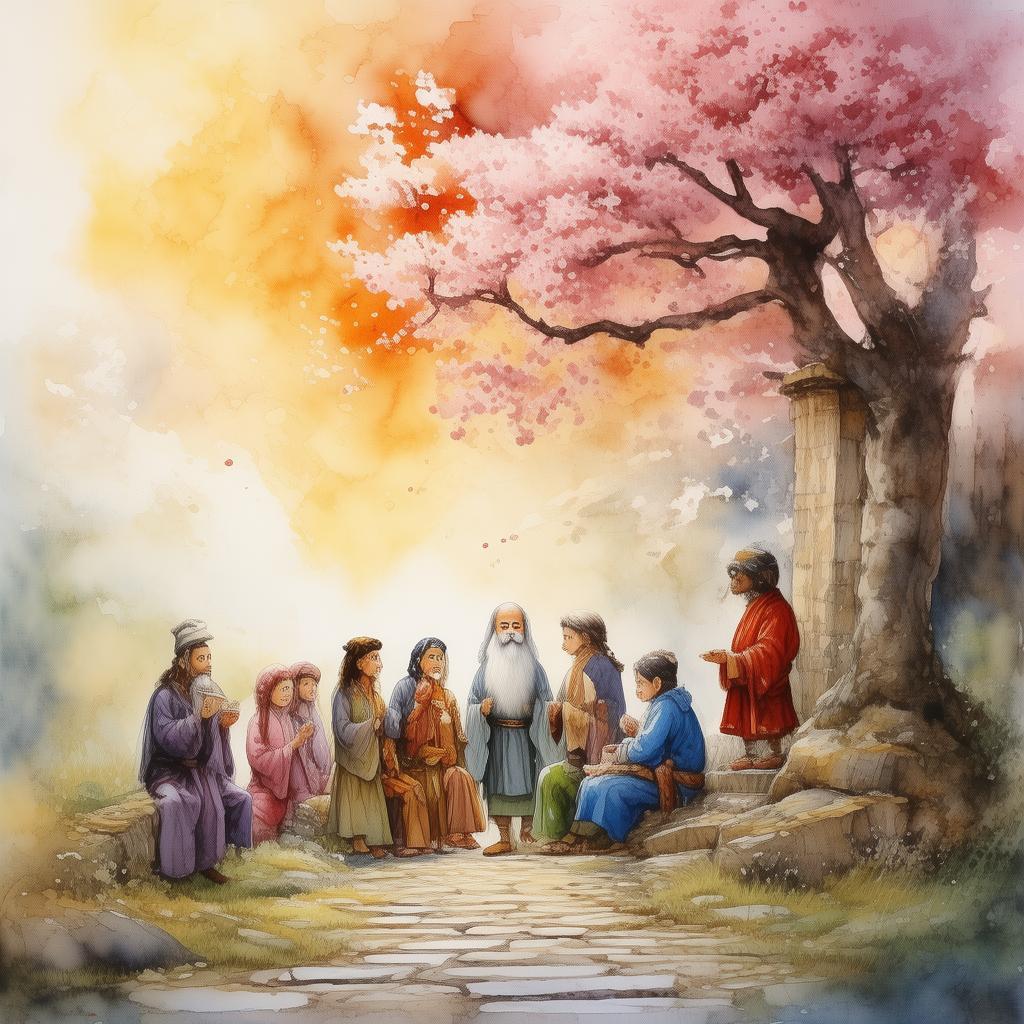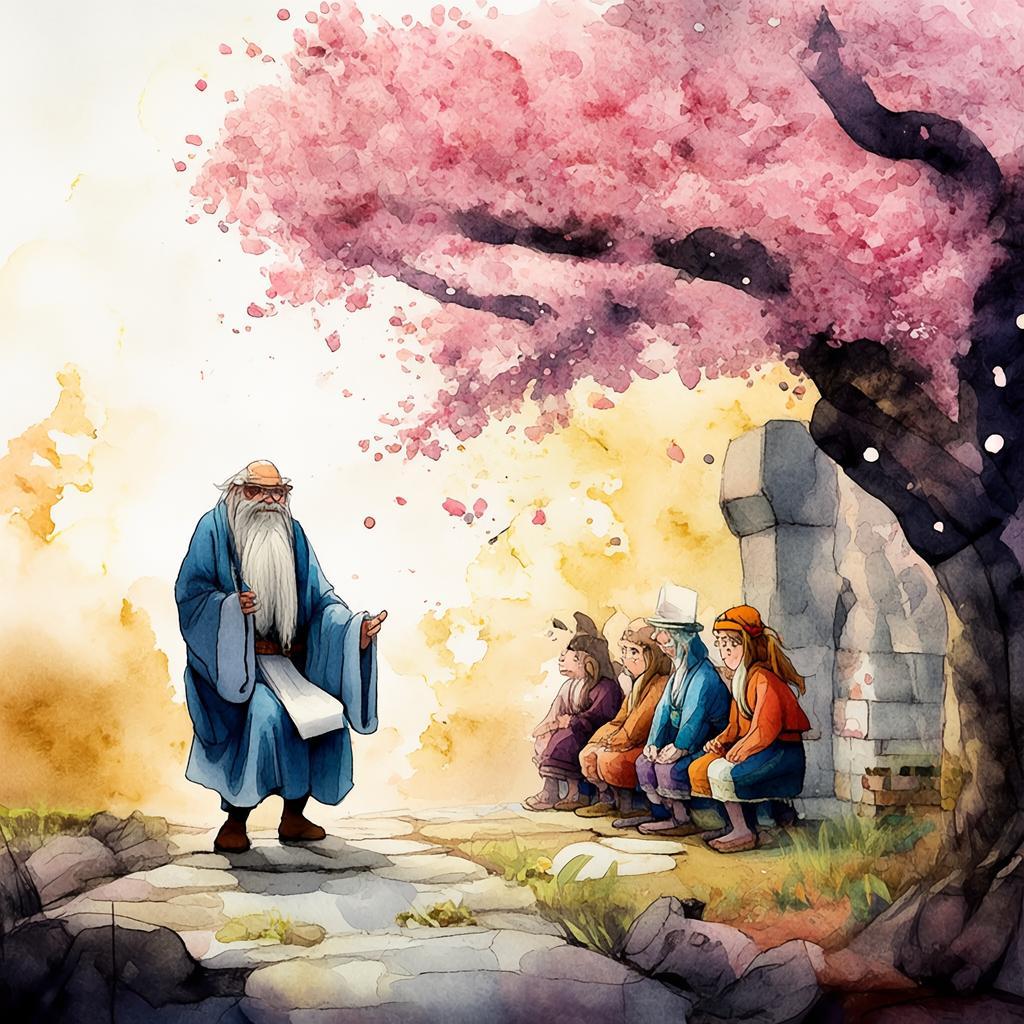Time Weaves: The Quest for Virtue
In the year 2147, Dr. Li Wei, a brilliant historian and time-traveler, was given a mission by the Time Travel Institute. His task was to uncover the true nature of the eight virtues—Wisdom, Courage, Honesty, Compassion, Justice, Temperance, Faith, and Hope—by traveling back to ancient China and experiencing the lives of those who embody these virtues.
Dr. Li Wei's journey began in the bustling streets of the Tang Dynasty, where he met a wise old monk named Zen. Zen, recognizing Li Wei's purpose, offered him a scroll that contained the tale of the eight virtues. "The true essence of virtue," Zen said, "is not found in books, but in the hearts of those who live them. You must journey through the streams of time and learn from those who have shaped history."
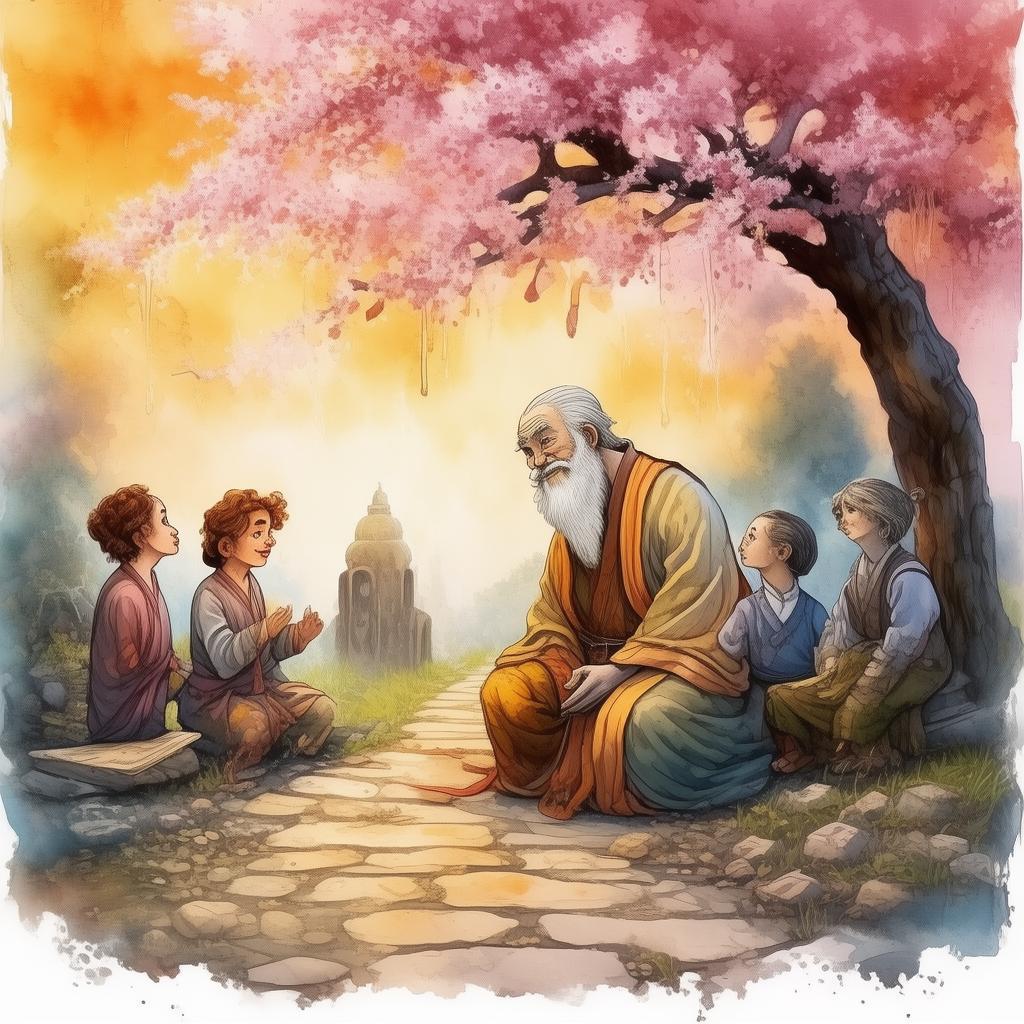
Li Wei's first stop was the court of the great Emperor Taizong, who was known for his wisdom. The emperor, surrounded by his advisors, was faced with a difficult decision: whether to execute a loyal general who had been framed for treason. Li Wei witnessed the emperor's internal struggle, as he sought to balance his wisdom with the demands of justice. In the end, the emperor chose to pardon the general, demonstrating the virtue of Temperance. Li Wei was deeply moved by the emperor's choice and realized that wisdom was not just about knowledge, but about the ability to make difficult decisions with a clear mind.
Next, Li Wei encountered a young warrior named Hua, who was known for his courage. Hua was on a mission to rescue a princess from a distant kingdom. Along the way, he faced numerous challenges, including a fierce dragon and a cunning sorcerer. Despite the danger, Hua remained steadfast in his resolve to save the princess. Li Wei learned that courage was not the absence of fear, but the strength to face it head-on. Hua's bravery inspired Li Wei to embrace his own fears and to face them with the same determination.
Li Wei's next stop was the humble abode of a simple farmer named Liang, who was known for his honesty. Liang had discovered a hidden treasure, but instead of keeping it for himself, he returned it to the rightful owner. Li Wei was impressed by Liang's integrity and learned that honesty was about being true to oneself and others, even when it was the harder path.
As he continued his journey, Li Wei met a compassionate nun named Ming, who dedicated her life to helping the poor and sick. Ming's selflessness and empathy were a constant reminder to Li Wei that compassion was the virtue that could heal the deepest wounds. Ming taught him that true compassion was not just about feeling sorry for others, but about taking action to make their lives better.
Li Wei's next encounter was with a judge named Jing, who was known for his justice. Jing faced the difficult task of deciding the fate of a group of rebels who had been accused of treason. Despite the pressure, Jing remained impartial and fair, ensuring that the truth was uncovered. Li Wei realized that justice was not just about handing out punishment, but about upholding the principles of fairness and equality.
The next virtue Li Wei sought was temperance, and he found it in the wise elder, Master Yuan. Master Yuan was known for his moderation in all things, from his diet to his teachings. Master Yuan taught Li Wei that temperance was about finding balance in life, not allowing oneself to be overwhelmed by desires or emotions.
Li Wei's journey took him to the court of the Empress Wu, who was known for her faith. The empress had faced numerous challenges throughout her life, including the loss of her family and her own ascension to the throne. Despite these trials, she remained steadfast in her faith. Li Wei learned that faith was about having hope in the face of adversity and that it could give one the strength to overcome even the most difficult situations.
Finally, Li Wei met a young poet named Feng, who was known for his hope. Feng's poetry was filled with optimism and the belief that even the darkest times would eventually give way to light. Li Wei realized that hope was the virtue that allowed one to see the potential for good in every situation.
As Li Wei's journey came to an end, he returned to the present day with a newfound understanding of the eight virtues. He realized that the true essence of virtue was not about being perfect, but about striving to embody these virtues in one's own life. With this knowledge, Dr. Li Wei resolved to use his time-traveling abilities to help others understand the importance of virtue and to inspire them to live lives filled with wisdom, courage, honesty, compassion, justice, temperance, faith, and hope.
In the end, Li Wei's quest for virtue had not only changed his own life but had also touched the lives of those he had encountered throughout history. The Time-Traveler's Tale of the 8 Virtues in the Streams of Time had become a testament to the enduring power of moral values and the impact they can have on the world.
✨ Original Statement ✨
All articles published on this website (including but not limited to text, images, videos, and other content) are original or authorized for reposting and are protected by relevant laws. Without the explicit written permission of this website, no individual or organization may copy, modify, repost, or use the content for commercial purposes.
If you need to quote or cooperate, please contact this site for authorization. We reserve the right to pursue legal responsibility for any unauthorized use.
Hereby declared.
